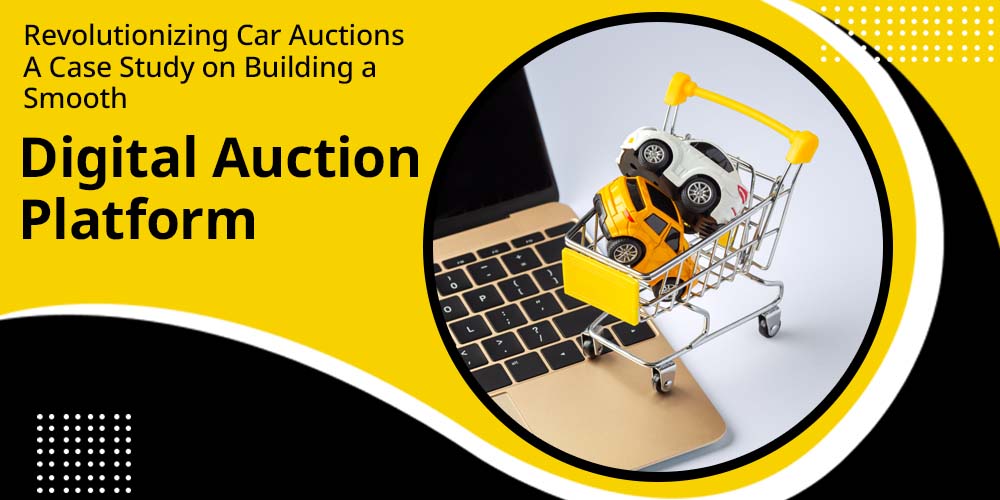The Traditional Car Auction Landscape
Car auctions have long been a popular method for buying and selling vehicles, often providing sellers with competitive offers and buyers with a range of options. These auctions typically occur in physical locations, requiring in-person attendance and extensive logistical coordination. While traditional auctions have their merits, they come with several drawbacks:
-
Limited Accessibility: Buyers and sellers can only participate within a specific geographical area and timeframe.
-
High Costs: Costs associated with staging an auction, including venue rental, insurance, and transportation, can be significant.
-
Subjectivity in Valuation: Vehicle valuations can vary widely based on bidder perceptions and competitive atmospheres.
As the automotive landscape evolves, these limitations highlight the need for a shift to more modern, efficient auction methods.
The Shift Towards Digital Platforms
The rise of digital technologies has prompted various industries, including automotive, to adapt and innovate rapidly. Car auctions are no exception. The shift towards online platforms allows for greater flexibility, expanded reach, and streamlined processes. Key motivations behind this transition include:
-
Increased Participation: With a seamless digital auction platform, buyers and sellers from all over the world can engage, broadening market access.
-
Efficient Processes: Automated systems reduce administrative burdens, aiding in faster transactions and decluttering complex procedures.
-
Transparency: Digital platforms enhance user confidence through transparent bidding processes and accessible auction histories.
The increasing reliance on digital solutions showcases how technology can enhance user experiences in car auctions, creating a modern marketplace designed for efficiency.
Key Features of a Seamless Digital Auction Platform
To successfully revolutionize car auctions, it is essential for a digital platform to include several key features. These may include:
-
User-Friendly Interface:
-
An intuitive design that makes navigation easy for both buyers and sellers.
-
-
Live Bidding Functionality:
-
Real-time bidding capabilities ensure participants can engage as if they were physically present.
-
-
Detailed Listings:
-
Comprehensive descriptions, high-quality images, and vehicle history reports enhance buyer confidence.
-
-
Secure Payment Processing:
-
Integration with secure payment gateways ensures safe transactions, protecting both buyers and sellers.
-
-
Customer Support:
-
A dedicated support team available to assist users can enhance user satisfaction and resolve issues promptly.
-
By incorporating these features, a digital platform can stand out in the crowded market of car auctions.
Case Study: Implementation and Results
One notable example of a successful transition to a digital car auction platform involves a well-known auction house that embraced technology. By leveraging their existing expertise and investing in digital infrastructure, they launched an online auction platform that resulted in:
-
A 40% Increase in Participation: The platform attracted bidders from across the country, enhancing competition and visibility for sellers.
-
Reduction in Auction Cycle Time: The efficiency of online listings and automated bidding processes cut the average auction cycle time by half.
-
Improved Sales Prices: Sellers reported increased final sale prices due to a wider audience and competitive bidding dynamics.
By focusing on user experience and leveraging digital tools, this auction house successfully navigated the shift towards an online platform.
Benefits of Digital Car Auctions
The advantages of adopting a digital approach to car auctions are numerous:
-
Broader Audience Reach: Access to a global marketplace leads to higher potential bids.
-
Cost Savings: Reduced overhead costs when compared to traditional auction setups.
-
Convenience: Buyers can browse and bid from the comfort of their homes, increasing participation rates.
-
Comprehensive Data Analytics: Sellers can gain insights into buyer behavior and trends, allowing for informed pricing strategies.
These benefits make a compelling case for traditional auction houses to consider transitioning to digital platforms.
Challenges in Transitioning to a Digital Model
While the advantages are clear, several challenges may arise during the transition to a digital auction model:
-
Technical Barriers: Developing and maintaining a robust digital platform requires investment in technology and skilled personnel.
-
User Education: Not all users may be familiar with online bidding processes; educating both buyers and sellers is essential.
-
Resistance to Change: Long-established practices in traditional car auctions may lead to pushback from both participants and industry stakeholders.
Addressing these challenges through effective change management strategies can facilitate a smoother transition.
Conclusion
In summary, revolutionizing car auctions through a digital auction platform presents opportunities for increased accessibility, efficiency, and enhanced user experiences. By understanding and implementing key features, auction houses can meet the demands of modern buyers and sellers. As technology continues to advance, those who embrace these innovative changes are likely to thrive in a competitive marketplace.
Encouraging engagement through user-friendly platforms not only helps build trust but also fosters a more dynamic and competitive car auction environment. Consider how adopting a seamless digital auction platform can benefit your auction practices—it's time to explore the future of car auctions!

